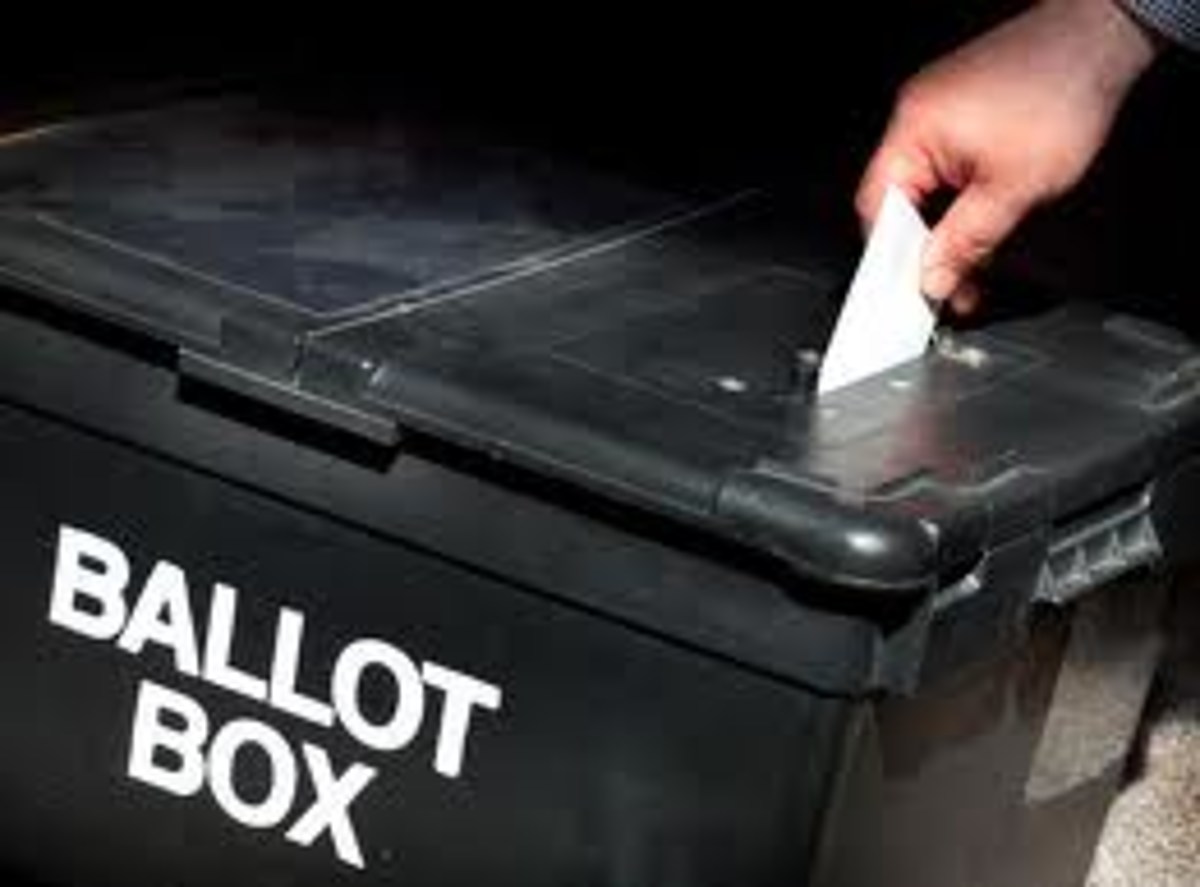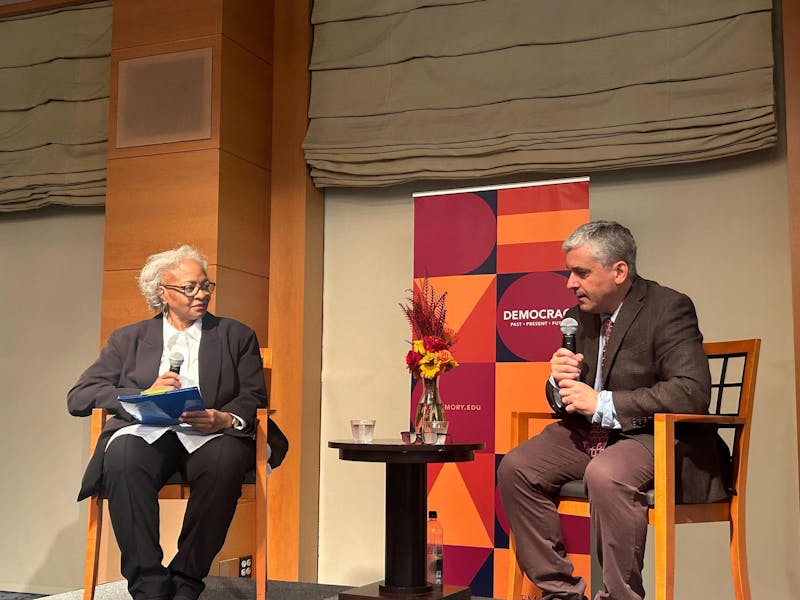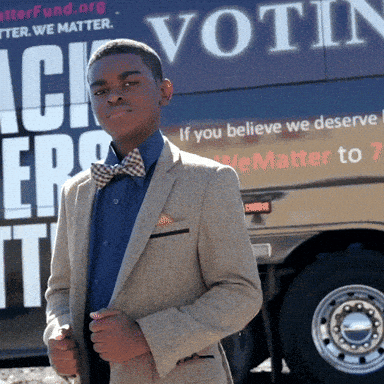- BlackVoter.Org
- Posts
- BLACKVOTER.ORG #133
BLACKVOTER.ORG #133

In a powerful op-ed, Haley Taylor Schlitz exposes the alarming scapegoating of Haitian immigrants in Springfield, Ohio, fueled by baseless rumors and political fearmongering. Highlighting the recycled tactics of hate from American history, she illustrates how misleading narratives, spread by figures like Donald Trump and J.
D. Vance, dehumanize an entire community, painting them as societal threats.
These dangerous claims not only distract from pressing issues like healthcare and economic inequality but also normalize hostility towards immigrants, leading to violence and systemic discrimination. Schlitz calls on her generation to confront these lies and stand in solidarity with marginalized groups.
She urges us to reflect on the kind of nation we want to be—one built on truth and justice or one that fosters division and hatred. As the stakes rise, it’s a pivotal moment for defining our values and future as a society.

Shady Rest Country Club in Scotch Plains, New Jersey, holds the title of America’s first Black-owned country club, established in 1921 by a group of Black businessmen. This historic venue has hosted legendary figures like golfer John Shippen Jr.
and tennis star Althea Gibson while doubling as a vibrant nightclub for stars like Ella Fitzgerald. However, the club’s infrastructure needs significant restoration.
In a boost for preservation, the African American Cultural Heritage Action Fund recently awarded $75,000 towards repairs, part of a broader initiative to safeguard 30 key sites across the country. Local community leaders, including former committee chair Sylvia Hicks and current chair Tom Donatelli, emphasize the importance of preserving this site not just for its sports legacy but also for its cultural and civil rights significance.
With ongoing community support, Shady Rest aims to reclaim its place as a cherished historical and recreational hub.

Excitement is brewing for the upcoming general election in Yakima! Voters can expect a brand-new two-page ballot, the first of its kind since 2004, designed to accommodate a host of significant races. Yakima County Auditor Charles Ross announced that early ballots are already in the mail for military and overseas voters, with the rest hitting mailboxes by October 18.
This busy ballot features the Presidential race along with statewide initiatives, congressional and local elections, and essential county commissioner seats—so voters should take their time in making choices. Remember, you don't have to complete every contest for your ballot to count! Just ensure it's postmarked by Election Day on November 5 or returned by 8 p.
m. that day.
For more details and a sample ballot, head to the elections division website.

On September 18, Emory University hosted a captivating event featuring Steven Levitsky and Carol Anderson, two prominent scholars discussing the state of American democracy. Levitsky, renowned for his works on democratic fragility, highlighted the pressing issue of the Republican Party's struggles in a multiracial democracy and warned of increasing political authoritarianism.
Anderson, an expert on racial tensions in America, emphasized the importance of vigilance against authoritarian trends, recalling historical struggles against oppressive regimes. The duo engaged in a thought-provoking dialogue about the future of democracy, urging the audience to recognize the fight for democratic ideals as a continuous responsibility beyond any single election.
Attendees departed with renewed hope, inspired by the call to action and the belief that America’s reformist tradition can prevail amid challenges. Their enlightening perspectives served not only to inform but to motivate a collective commitment to defending democracy.

In the heated landscape of the 2024 presidential election, Republican strategist Sarah Longwell believes Vice President Kamala Harris could gain crucial ground by honing in on Pennsylvania. With recent polls indicating a tightening race against Donald Trump in Iowa, Longwell emphasizes the significance of appealing to conservative and moderate voters.
Harris's approach, which has included showcasing endorsements from former Republican officials, positions her as a centrist alternative. Longwell argues that rallying just a few percent of center-right voters could swing key battleground states and solidify an unexpected coalition.
While Trump’s base remains fervent, Harris's ability to energize diverse demographics—particularly suburban and college-educated voters—may be pivotal. Longwell’s insights suggest that Harris's outreach could challenge Trump's rural stronghold and reframe the election narrative.
As the final weeks loom, the focus on Pennsylvania appears vital for Harris's campaign strategy.

The upcoming 2024 election in Michigan may pivot on a critical issue—water affordability. In Detroit, a staggering 27% of households face water shutoffs due to unpaid bills, averaging $700 owed per family.
This precarious situation predominantly affects working-class and low-income Black voters, a demographic that could prove pivotal for Kamala Harris as she seeks to energize turnout akin to the 2020 election. Recent surveys reveal that 87% of Black Detroiters support legislation linking water rates to income, yet these bills have stalled in committee.
With rising concerns about crime and healthcare adding to the urgency, Harris's campaign must articulate a comprehensive cost-of-living plan to resonate with these voters. As she competes against Trump, whose stance remains contentious, her ability to galvanize support will likely determine her fate in this critical swing state.

In a striking controversy, Black Democratic operatives are voicing their frustration over Vice President Kamala Harris' campaign spending practices, alleging that her team disproportionately favors white-owned vendors while neglecting Black-owned firms. This issue, highlighted in a report by NOTUS, has raised alarm among Democratic leaders just weeks before the election.
Derrick Johnson, president of the NAACP, among others, questioned the campaign's allocation of nearly $1 billion in fundraising, emphasizing the historical importance of minority firms in Democratic campaigns. Critics point to a concerning underinvestment in the Black Press, and internal campaign friction is evident, with some staff feeling ignored when advocating for equitable spending.
As Black voter support wavers—dropping to 82% for Harris—the urgency for action mounts to regain trust and effectively mobilize the critical Black vote. The campaign now faces pressure to align its spending with Harris' commitments to Black communities.

The rise of White Citizens' Councils in the wake of the landmark Brown v. Board of Education decision marked a grim chapter in the fight against racial integration in the 1950s.
Emerged as a reaction to the Supreme Court's abolishment of legal school segregation, these councils, led by figures like Mississippi Circuit Court Judge Tom P. Brady, quickly gained traction across the South, garnering the support of the white business elite.
Claiming to be a more civilized alternative to the violent Ku Klux Klan, they sought to protect segregation through economic intimidation and propaganda, labeling opposition as a threat to their way of life. Despite their claims of non-violence, the councils fostered an environment ripe for aggression against those advocating for civil rights, leading to silenced voices and thwarted voter registration efforts.
With a peak membership of 80,000 by 1956, the councils left a lasting, dark legacy that still resonates today with similar groups.

Dr. Reverend Milton McElroy Flynn, born on Christmas Day in 1900, emerged as a pivotal figure in the civil rights movement of Northwest Louisiana, spearheading the region's first voter drives in the late 1950s.
As the early president of Shreveport’s NAACP chapter, Flynn passionately advocated for African American rights and mobilized local communities to pursue civic improvement. His efforts culminated in a historic voter registration drive that successfully registered over 1,000 Black residents in Shreveport.
Flynn’s leadership extended beyond voter registration; he was involved in educational initiatives and community beautification projects, making significant contributions to local civil rights. Despite facing threats and intimidation, his unwavering commitment to justice transformed voter drives into a general blueprint for activism across the South.
Remembered for his courage and influence, Flynn’s legacy continues to inspire generations in the fight for equality. He passed away in 1985, leaving behind a powerful legacy of activism and hope.

As the 2024 U.S.
presidential election looms, candidates Donald Trump and Kamala Harris are laser-focused on key battleground states that could tip the scales of victory. With polls showing neck-and-neck races in crucial states like Arizona, Georgia, and Michigan, both candidates are tailoring their strategies to attract undecided and swing voters.
Trump aims to regain ground with rural voters and discontent demographic groups, while Harris is working to energize younger voters and reignite support among those who backed Biden in 2020. Economic issues, particularly inflation and labor concerns, dominate the dialogue as both campaigns plot intricate outreach efforts.
As election day approaches, the stakes couldn’t be higher—small shifts in voter sentiment could lead to significant electoral reversals. With millions of votes on the line, the battle for the White House is nothing short of a thrilling cliffhanger unfolding across the nation.

Democratic Senate candidate Lucas Kunce is facing a fierce backlash from Republican Senator Josh Hawley following his refusal to endorse Vice President Kamala Harris in Missouri's tight Senate race. In a recent radio ad, Hawley mocks Kunce for dodging questions about supporting the Harris-Walz ticket, questioning his commitment to his own party.
The ad features women discussing their excitement for voting for Harris while calling Kunce "scared" and "weak." Despite Kunce's attempt to steer the focus of his campaign toward representing Missourians, Hawley's attack is designed to paint him as untrustworthy and indecisive.
As the election approaches, with polls showing Hawley leading, Kunce's refusal to endorse could become a defining issue in the race. This showdown highlights the challenges faced by candidates in conservative states who must navigate party loyalty and voter expectations.
